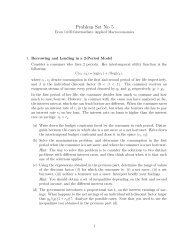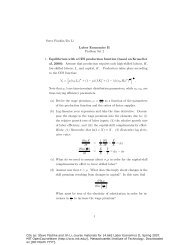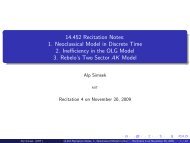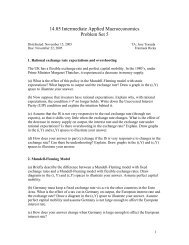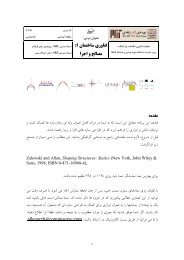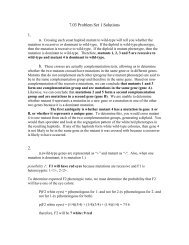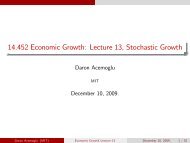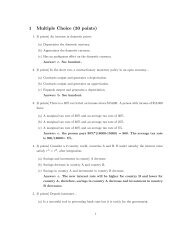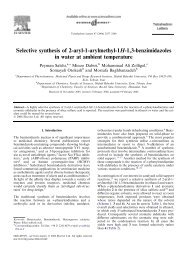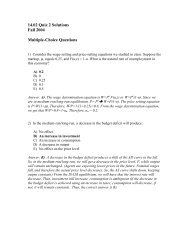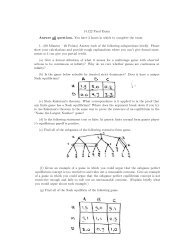14.05 Intermediate Applied Macroeconomics Exam #3
14.05 Intermediate Applied Macroeconomics Exam #3
14.05 Intermediate Applied Macroeconomics Exam #3
You also want an ePaper? Increase the reach of your titles
YUMPU automatically turns print PDFs into web optimized ePapers that Google loves.
unchanged. Since we have static expectations and perfect capital mobility, the tax cut willhave no effect on the interest rate.εLM*(0)IS*(0)IS*(1)Figure 2Y(c) Now suppose that investors have rational expectations. Show that the condition i= i* no longer holds and explain why. What condition now holds? Using thiscondition, show that there will be overshooting if Japan unexpectedly increases itsmoney supply. Draw graphs in (i,Y) and (ε,Y) spaces to illustrate your answer.The condition i=i* no longer holds with rational expectations because investors formexpectations about the exchange rate. If they expect the domestic currency to depreciate,they will require a higher return on domestic assets and the opposite if they expect anappreciation. Therefore now we have the uncovered interest rate parity condition,i=i*+E(έ/ε).The second term in the right hand side of this condition is the expected rate ofdepreciation of the domestic currency. If the domestic interest rate is lower than theforeign interest rate (ii*. So,the UIP simply says that rates of return must be equalized across countries once we takeinto account expected changes in the exchange rate.The following graphs illustrate an unexpected increase in money supply under rationalexpectations, where the LM curve shifts to the right in both the (i,Y) and (ε,Y) spaces:2



